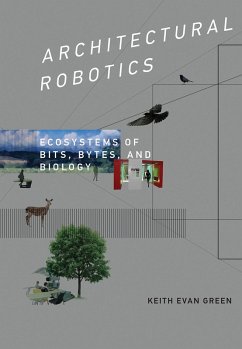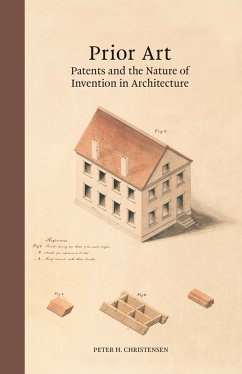
Architecture (eBook, ePUB)
From Prehistory to Climate Emergency

PAYBACK Punkte
0 °P sammeln!
A groundbreaking history of architecture told through the relationship between buildings and energyThe story of architecture is the story of humanity. The buildings we live in, from the humblest pre-historic huts to today's skyscrapers, reveal our priorities and ambitions, our family structures and power structures. And to an extent that hasn't been explored until now, architecture has been shaped in every era by our access to energy, from fire to farming to fossil fuels.In this ground-breaking history of world architecture, Barnabas Calder takes us on a dazzling tour of some of the most aston...
A groundbreaking history of architecture told through the relationship between buildings and energy
The story of architecture is the story of humanity. The buildings we live in, from the humblest pre-historic huts to today's skyscrapers, reveal our priorities and ambitions, our family structures and power structures. And to an extent that hasn't been explored until now, architecture has been shaped in every era by our access to energy, from fire to farming to fossil fuels.
In this ground-breaking history of world architecture, Barnabas Calder takes us on a dazzling tour of some of the most astonishing buildings of the past fifteen thousand years, from Uruk, via Ancient Rome and Victorian Liverpool, to China's booming megacities. He reveals how every building - from the Parthenon to the Great Mosque of Damascus to a typical Georgian house - was influenced by the energy available to its architects, and why this matters.
Today architecture consumes so much energy that 40% of the world's greenhouse gas emissions come from the construction and running of buildings. If we are to avoid catastrophic climate change then now, more than ever, we need beautiful but also intelligent buildings, and to retrofit - not demolish - those that remain. Both a celebration of human ingenuity and a passionate call for greater sustainability, this is a history of architecture for our times.
The story of architecture is the story of humanity. The buildings we live in, from the humblest pre-historic huts to today's skyscrapers, reveal our priorities and ambitions, our family structures and power structures. And to an extent that hasn't been explored until now, architecture has been shaped in every era by our access to energy, from fire to farming to fossil fuels.
In this ground-breaking history of world architecture, Barnabas Calder takes us on a dazzling tour of some of the most astonishing buildings of the past fifteen thousand years, from Uruk, via Ancient Rome and Victorian Liverpool, to China's booming megacities. He reveals how every building - from the Parthenon to the Great Mosque of Damascus to a typical Georgian house - was influenced by the energy available to its architects, and why this matters.
Today architecture consumes so much energy that 40% of the world's greenhouse gas emissions come from the construction and running of buildings. If we are to avoid catastrophic climate change then now, more than ever, we need beautiful but also intelligent buildings, and to retrofit - not demolish - those that remain. Both a celebration of human ingenuity and a passionate call for greater sustainability, this is a history of architecture for our times.
Dieser Download kann aus rechtlichen Gründen nur mit Rechnungsadresse in A, B, BG, CY, CZ, D, DK, EW, E, FIN, F, GR, HR, H, IRL, I, LT, L, LR, M, NL, PL, P, R, S, SLO, SK ausgeliefert werden.













